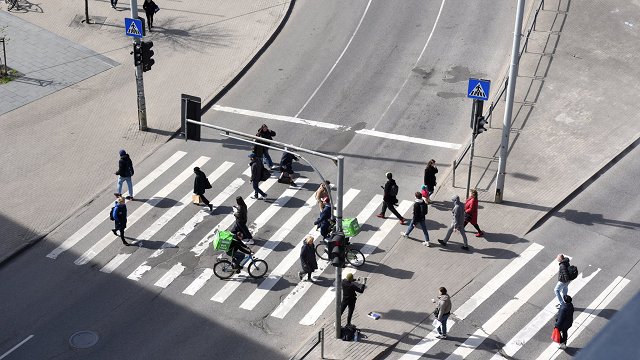In monetary terms that is about €200 over what the Central Statistics Office reported for last year. It put the 2018 average net wage at €742.
The survey was conducted by CV Online Latvia and had about 24,000 respondents. Company head Aivis Brodiņš said that while the share of the shadow or unreported economy is still quite high, it is nevertheless slowly shrinking.
"It could testify to successes in fighting the shadow economy. The tax reform has had some effect as well. Last year was different in that wages grew across all business sectors. They have grown particularly fast in sectors such as education, medicine and social care where the average wage is comparably low," he told Latvian Radio May 8.
Wages remain highest in sectors such as IT, finance and pharmaceuticals.
Meanwhile there's a squeeze on workforce availability, which puts an upward pressure on wages and consequently on businesses. But Brodiņš said that the trend of growth is to continue in the coming years.
Meanwhile SEB economist Dainis Gašpuitis said that wage growth may not be as stable in some industries. "At some point the situation in an industry simply turns in the opposite direction, while an employee who has left work will not have anywhere to come back to, as this workplace will have been closed. Either the company will have gone bankrupt, or the business niche will have been closed," he said.
But serious side effects, like business closures, are to come in the next two or three years if the job market continues to heat up, he said.
Employees are likewise seeing benefits from the changes that stipulate that all job advertisements have to specify the expected wage. Before, just 5% to 7% of employers chose to publish this information, and while big companies welcome the change, smaller enterprises aren't as happy.
The research likewise compared regional wage differences, and according to the data wages grew slower last year in Rīga than across the rest of the country. But the difference between wages in the Latgale cultural region and Rīga remains at a staggering 53%, said Brodiņš.
Gender pay differences likewise remain pronounced, with women earning 26% less than men. But this too is slowly decreasing.






























